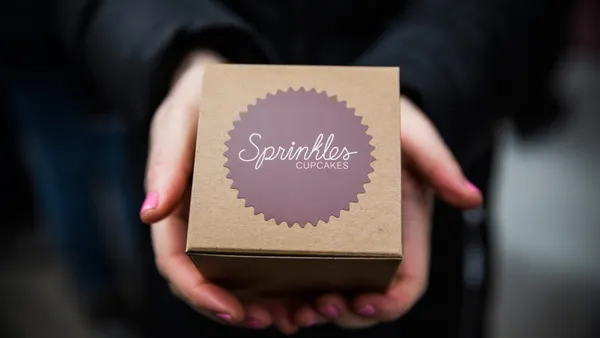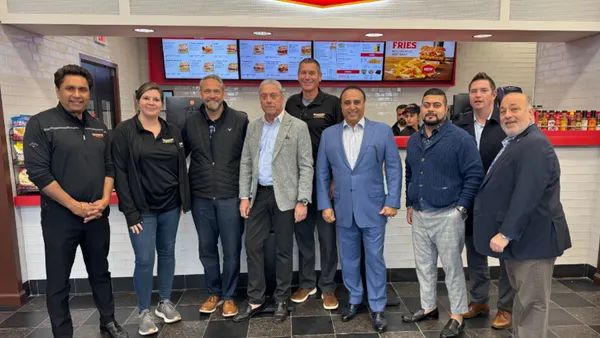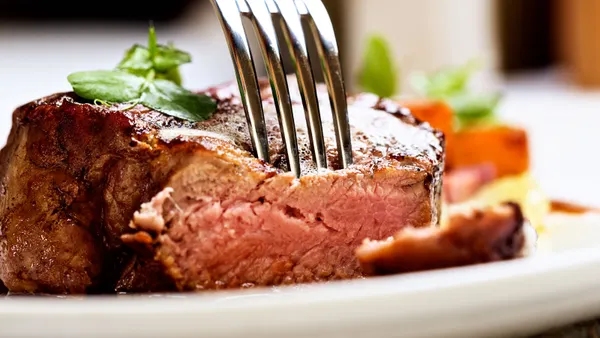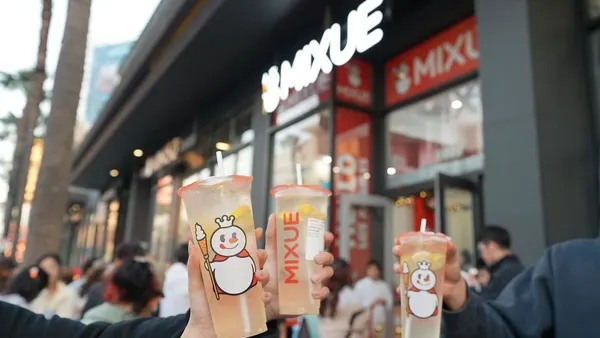Dive Brief:
- Chipotle, which has been testing artificial intelligence-generated voice assistants for phone orders since the beginning of 2018, plans to expand the system to all 2,500 of its restaurants by the end of 2019, Nation's Restaurant News reports. The test started at 10 restaurants and grew to 1,800 locations this year.
- The system features a female voice that offers suggestions to customers, such as adding salsa or sour cream. The algorithm becomes more refined as more customers order through the system.
- The program is being used as a convenience, and is not related to labor issues. Customers using the automated system can place their order, pay ahead and skip the line by grabbing food off a pickup shelf, Chipotle's Nicole West, VP of digital strategy and product, told the publication. Manual phone orders don't allow for pay ahead.
Dive Insight:
Voice-enabled and bot ordering aren't new concepts in the restaurant space. Dunkin' introduced voice-activated ordering last year, following similar moves by Pizza Hut, Wingstop and Starbucks. Domino's introduced a voice recognition system in 2018, four years after its virtual ordering assistant DOM was rolled out.
For Chipotle, AI-powered phone orders are a piece of the company's broader digital ecosystem created specifically to remove friction during the customer journey, from mobile ordering and pay to delivery and digital pickup shelves.
The AI voice system also reduces the amount of time employees have to spend on the phone, West told Nation's Restaurant News. Sales and savings data for Chipotle's test is not yet available. However, findings on chatbot efficiency could translate to this system as well, as both automate simple tasks and either contribute to labor savings or free up labor to do other, more important tasks. Because of these benefits, Juniper Research predicts that chatbots could help save businesses more than $8 billion per year by 2022.
Seamless ordering and labor savings aside, perhaps the biggest benefit from adding this capability comes with its ability to "get smarter" as it takes on more orders, leveraging machine learning to better personalize customers' experiences. This is exactly what McDonald's is going for from its March acquisition of Dynamic Yield, which will be rolled out to 8,000 U.S. restaurants in August. Dynamic Yield also leverages AI to better engage with customers and provide a more personalized experience. The only difference is this technology is used at the drive-thru rather than on the phone.
With 79% of diners interested in personalized menus, these systems can be a major competitive advantage. Simultaneously, Chipotle is also riding significant momentum by leveraging voice automation. According to OC&C Strategy Consultants, about $1.8 billion of voice commerce was conducted in the U.S. in 2017, with predictions of voice commerce reaching $40 billion by 2022.
Judging by Chipotle's Q2 earnings call last week, it's clear that its comprehensive digital efforts are paying off. Digital sales grew 99.1% during the quarter and made up more than 18% of total sales. In some restaurants, digital orders are above 30%. The company is reaping these benefits, with revenue up more than 13% and same-store sales up 10% for the quarter.








